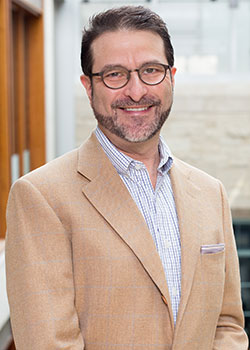U.S.-Israel consortium launches $21.4 million initiative to develop water-energy technologies
Published on by Water Network Research, Official research team of The Water Network in Academic
New energy-efficient technologies will focus on water desalination, purification and reuse

Jack Gilron (in grey hat) gives Northwestern students a tour of a desalination laboratory in Israel.
Northwestern University and BGN Technologies, the technology transfer company of Ben-Gurion University of the Negev (BGU), announced today the initiation of a U.S.-Israel consortium led by both universities for the development of new technologies to solve global water challenges.
The multi-institutional, international program, called the Collaborative Water-Energy Research Center (CoWERC), has a total budget of $21.4 million, including a $9.2 million grant over 5 years from the U.S. Department of Energy and Israel’s Ministry of Energy together with the Israel Innovation Authority. CoWERC is part of the U.S.-Israel Energy Center program administered by the U.S.-Israel Binational Industrial Research and Development (BIRD) Foundation.
Working at the intersection of water and energy, the team will research, develop and commercialize technology in three areas: energy-efficient enhanced water supply, wastewater reuse and resource recovery, and energy-water systems. All CoWERC projects are binational and include university, national laboratory and industrial partners. Technology development efforts will culminate in pilot testing at water and wastewater facilities in both Israel and the U.S. After being validated, the new technologies could potentially be implemented around the world.

Aaron Packman
“Water and energy are inextricably linked: water purification and distribution are primary uses of energy, while water is essential for energy production,” said Aaron Packman, professor of civil and environmental engineering in McCormick School of Engineering and director of Northwestern’s Center for Water Research. “CoWERC will enable us to develop new technologies that will reduce the energy needed for desalination, improve recovery of water and energy, and support safe water reuse.”
“We are excited to launch together with our partners this very unique water-energy binational initiative,” said Amit Gross, professor of environmental and water sciences at the Blaustein Institutes for Desert Research and director of the Zuckerberg Institute for Water Research (ZIWR) at BGU.
"Interestingly, urban wastewater contains more energy than the amount needed for its purification,” said Moshe Herzberg, professor of environmental engineering at ZIWR. “Our aim is to recover this energy, along with nutrients, and reuse the treated water.”
Professors Packman and Herzberg co-direct CoWERC.
The highly collaborative consortium includes partners from leading research institutions, water utilities and private companies. Led by Northwestern University, the U.S. team includes Argonne National Laboratory, Yale University, DuPont Water Solutions, Evoqua Water Technologies, Hampton Roads Sanitation District (HRSD), Metropolitan Water Reclamation District of Greater Chicago, CycloPure and Current. Led by Ben-Gurion University, the Israeli team includes the Technion Israel Institute of Technology, Mekorot-Israel National Water Company, Fluence Corporation and the Galilee Society.
March 11, 2020 | By Amanda Morris
Media
Taxonomy
- Water Reuse & Recycling
- Water-Energy Nexus
- Thermal Desalination
- Solar Desalination